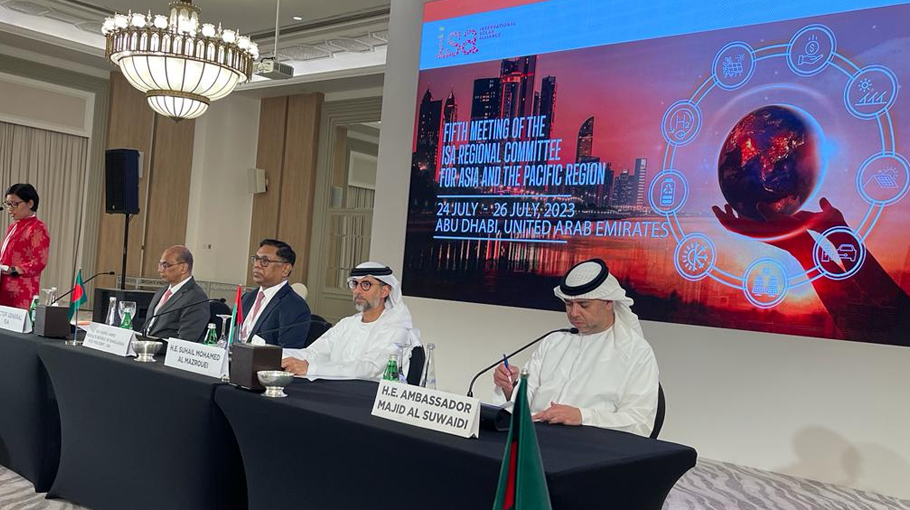Transiting to clean energy from fossil fuels
Nasrul Hamid urges ISA for coordinated efforts

State Minister for the Ministry of Power, Energy and Mineral Resources Nasrul Hamid on Tuesday said coordinated and collective efforts are needed for a successful transition to clean energy from fossil fuels.
"Our strategies are deeply rooted in fuel diversification, clean energy, and
climate change mitigation," he said while presiding over the Fifth Meeting of
the ISA Regional Committee for Asia and the Pacific Region of the
International Solar Alliance (ISA) in Abu Dhabi, United Arab Emirates (UAE). Bangladesh is progressing to be a middle-income nation from a developing one,
the government's strategies are deeply rooted in fuel diversification, clean
energy, and climate change mitigation, said Nasrul Hamid.
He said, "Under the visionary leadership of our Prime Minister Sheikh Hasina,
we are resolute in our commitment to embrace renewable energy sources and
reduce our carbon footprint."
The state minister said that the government has already expressed its
aspiration at the COP26 for generating 40 percent energy from renewable
sources by 2041.
"We have adopted and implemented various policies and initiatives to promote
renewable energy, energy efficiency, and cleaner use of fossil fuels. We are
also developing new policies and plans to pave the way for energy
transition," he said.
Nasrul Hamid said the policies are Integrated Energy and Power Master Plan,
Mujib Climate Prosperity Plan, Solar Energy Roadmap, Roadmap to Scale-up
Solar Irrigation (2023-2031) and a new Renewable Energy Policy.
"We have successfully materialized the world's largest solar power
dissemination programme, with approximately six million Solar Home Systems
providing electricity to over 20 million people. These efforts have made a
substantial impact on the lives of our citizens, empowering communities with
access to clean and reliable electricity," he added.
The state minister said in line with the government commitment to green and
clean energy, Bangladesh has taken a bold step by moving away from
implementing ten coal fired power plant projects, amounting to approximately
$10 billion investment.
"This decision signifies Bangladesh's government unwavering dedication to
combating climate change and embracing clean energy solutions, even though it
may have financial repercussions," he added.
Nasrul Hamid sought support from committee for investments in power sector to
offset financial challenges, as the government set a target to install 24000
MW renewable energy capacities by 2041.
Currently, Bangladesh installed around 1200 MW of renewable energy capacity
which is 4.24 percent of the current electricity generation capacity mix. "We
are processing 108 renewable projects which will add approximately 10000 MW
of renewable power."
Bangladesh took part in the meeting as the Vice President of the ISA. Among
others, Minister of Energy and Infrastructure of the UAE Suhail Mohamed Al
Mazrouei, director General of ISA Dr Ajay Mathur along with heads of
representatives of member states of Asia and Pacific region spoke.




